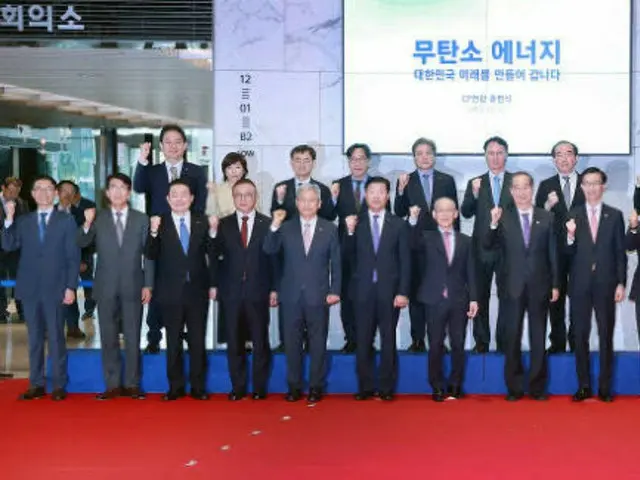The aim is to use this opportunity to help Korean industry more effectively respond to global carbon regulations and expand into the clean economy market. According to the Ministry of Trade, Industry and Energy, the Ministry of Foreign Affairs, and the Ministry of Environment, there are major relationships with 36 countries.
On the 1st (local time), the 28th United Nations Framework Convention on Climate Change (UNFCCCCOP28) was held in Dubai, United Arab Emirates (UAE), from November 30th to December 12th.
The official launch of BU was announced. The Climate Club is a cooperative mechanism proposed by Germany at the Group of Seven (G7) summit in January 2022. Low carbon to achieve carbon neutrality in the industrial sector
The idea is to develop the technology and create an international standard for it. Since then, the number of member countries has increased, with a total of 36 countries participating in the inauguration ceremony. South Korea also officially announced its intention to participate during the G7 summit meeting in May this year.
and became a founding member. In addition to the G7 (Germany, US, UK, Italy, Japan, Canada, France) and South Korea, there are also Chile, Indonesia, Kazakhstan, Kenya, Morocco, and the EU.
participated as founding members. The inauguration ceremony was attended by key figures including German Chancellor Scholz and European Union (EU) Executive Committee President Ursula von der Leyen. in korea
Ambassador for Climate and Environment Cho Hong-sik of the Ministry of Foreign Affairs (professor at Seoul University Graduate School of Law) participated as a special presidential envoy. On this day, the Kiko Club will launch its official secretariat and begin full-scale activities.
. Until now, the Organization for Economic Co-operation and Development (OECD) and the International Energy Agency (IEA) have assumed the role of temporary secretariat. The Climate Club is an industry sector that accounts for a quarter of the world's greenhouse gas emissions.
The plan is to carry out a variety of activities with the goal of decarbonizing the world. The two countries plan to promote the development of low-carbon technologies and create standards to mutually confirm their achievements in reducing greenhouse gas emissions.
Taking the Kyoto Protocol of 1997 and the Paris Agreement of 2015 as an opportunity, 197 countries around the world are aiming to achieve carbon neutrality around 2050 in order to prevent climate change including global warming.
We decided to participate in achieving the goal of (zero net greenhouse gas emissions). Additionally, attempts are being made worldwide to make this a compulsory performance obligation. 100% renewable for businesses
Representative examples include the RE100 campaign, which imposes energy use obligations, and the EU's recently implemented Carbon Border Adjustment Mechanism (CBAM).
The Korean government will act as a member of the climate club to help Korean industries more effectively respond to national carbon emission regulations,
Expectations are high whether the company will be able to explore entry into the clean economy market. Government officials said, ``Member countries should coordinate their national carbon neutrality policies with a common goal and establish international standards for this.
"By establishing a system of protection, we can also curb the spread of protectionist measures that accompany the introduction of unilateral environmental policies by each country," he added. Furthermore, the Korean government is promoting carbon-free energy (
We will also explore the global expansion of Carbon Free Alliance (CFA), a corporate group that participates in this initiative. CFE has been set as an international goal by the Yun Seo-gyul administration and Korean industry.
This is a new carbon neutral methodology that we are promoting. It is difficult to achieve the goal with current efforts to achieve carbon neutrality, which are centered on renewable energy sources such as solar and wind power.
We will promote the development of related industries in a way that recognizes all carbon-free energy sources, such as nuclear power, hydrogen, and carbon capture, regeneration, and storage (CCUS), as achievements in reducing greenhouse gas emissions.
This is a new international norm that aims to increase the possibility of achieving carbon neutrality. A South Korean government official said, ``The activities of the Climate Club are part of an international collaboration aimed at achieving fair carbon neutrality in industry.''
"It is integrated with the CFA, which is being promoted by the Korean government and industry to strengthen the CFE," he said, expressing his expectations for the synergy effect between the Climate Club and CFE.
2023/12/04 08:35 KST
Copyrights(C) Edaily wowkorea.jp 107

